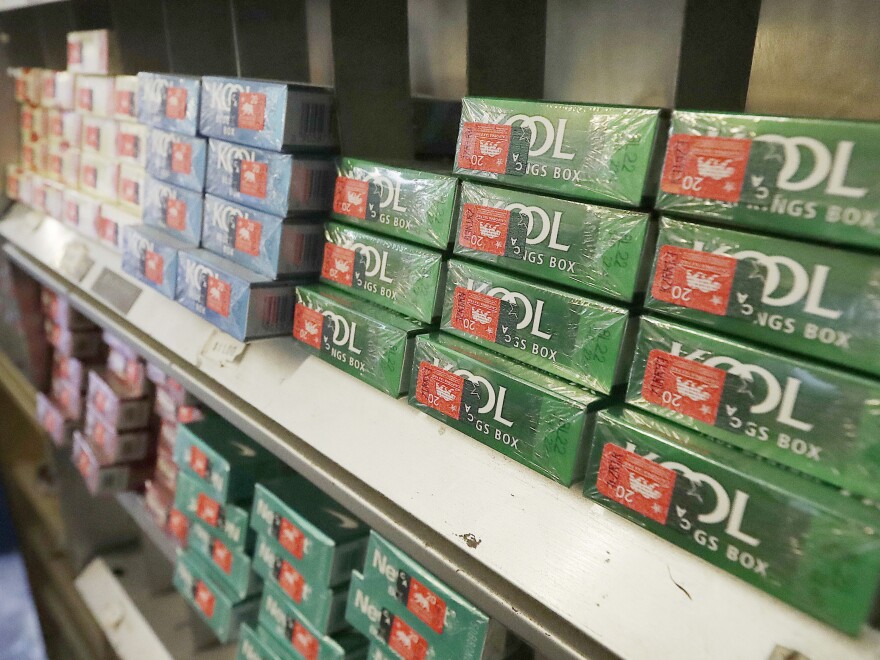Public health experts and advocates for African American wellness are calling on the city of Columbus to ban the sale of menthol cigarettes and flavored vaping products. But others contend the city would make a bigger impact by focusing on enforcement of existing laws, instead of making new bans and rules.
There’s been no shortage of differing opinions present at the several community and business-oriented meetings sponsored by Columbus City Council since they first began exploring the recommendation from Columbus City Health to implement the ban.
But, Councilwoman Shayla Favor said many could agree on one thing. “What was made loud and clear, was that there was the need to have greater enforcement and greater penalties for those bad actors that are not playing properly in the sandbox,” Favor said.
Many called for the city to worry about enforcing the current laws, like the recent move restricting tobacco sales to people over 21, over instituting new bans.
Health Commissioner Dr. Mysheika Roberts supports the proposed ban on flavored products, but she said there are issues enforcing current laws. “Our compliance rate in the city of Columbus is just about 70%. So, it's not 100%, so that is a concern. And we work with businesses, we provide education with the businesses, but many of our businesses are still selling to our youth,” she said.
At one of those recent meetings, Brian Fojtik with the National Association of Tobacco Outlets, said most retailers want a well-regulated market to keep competition fair.
“We would just prefer that it'd be a legal, regulated market with licensed retailers, who can be policed by the city and the health department and ensure they're complying with the law rather than an illicit market, which doesn't have the same respect for the law or selling to youth and all of that,” he said.
Health officials say retailers will be the ones restricted in their sales and held accountable if a ban is enacted, not smokers getting in trouble for possession of banned products.
Elliot Boyce, who works in law enforcement in New York, said a ban in Columbus will create the incentive for an illicit market. “Now, (say hypothetically) I decided I'm going to go to Virginia. Every time I hit the Ohio line, now I am trafficking. So now you have people trafficking, good citizens that normally wouldn't do it. But if they could buy a $5 pack in Virginia, and bring them to Columbus to sell them at $10, it’s money overhead they’re going to make,” Boyce said.
Whether the city institutes the ban or not, Commander Eric Wolf with the Ohio State Highway Patrol’s investigative unit, said the key to getting tobacco retailers to comply with the rules is undercover checks.
“The more frequent you do the checks and the more kind of spread out they are throughout the year, the better compliance you’ll get,” Wolf said.
Data from the patrol shows that when compliance checks tapered off because of the COVID-19 pandemic, so too did the overall compliance rates. And, rates of compliance seemed to be higher in years directly following years with heavier compliance checks.
One of the ways Ohio seems to fall short when it comes to its tobacco enforcement policy is in exactly who they’re punishing when someone under 21 buys tobacco illegally.
“That's usually the minimum wage clerk,” said Rob Crane, founder of the Preventing Tobacco Addiction Foundation and Tobacco 21.
He says the responsibility for the illegal sale should be shouldered in part by the retailer, and not just the clerk.
“I don't think it's entirely your clerk’s fault. If you are not training your clerks, then maybe you need to do something. Because of course, this is the most addictive, deadly drug in the world. Half a million Americans die every year from smoking,” Crane said.
To increase enforcement, the city is considering adding one to two new health department employees to work on compliance checks at the city’s 800 tobacco retailers.
Assistant health commissioner Edward Johnson said that to fund it, the cost of a retail license would rise by $200 to $350. And to make violations more painful, initial civil fines would double to $1,000. Escalating consequences would lead violating retailers to lose out on two years’ worth of tobacco sales on the third strike.
“We thought that that was a sufficient deterrent to say ‘let's not get to three strikes.’ Because every responsible business owner at these conversations said, ‘we don't sell and this is that mechanism, we think to get those bad actors that are selling to under 21 out of the game,’” Johnson said.
Health Commissioner Dr. Roberts said the department is also considering other routes to encourage smoking cessation, like incentivizing quitting with money.
City Council President Shannon Hardin says the council should also ensure it does more to help people quit with legislation meant to encourage cessation products.
Council is expected to host another community meeting on the issue on Thursday, Dec. 1 at 5 p.m. in Columbus City Hall.
More information about the proposal is available on the city's website.


